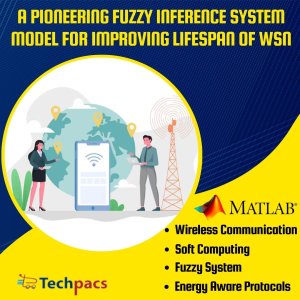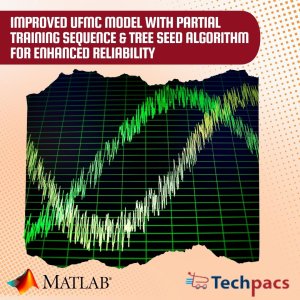Optimized Text Independent Speaker Recognition Using WOA-Bi-LSTM with MFCC Features
Problem Definition
After conducting a thorough literature review on speaker recognition systems, it is evident that the selection of appropriate features plays a critical role in the overall performance of the system. While many studies recommend the use of Mel-Frequency Cepstral Coefficients (MFCC) as the primary feature model, there is a lack of focus on feature selection models in existing research. This limitation indicates a potential area for improvement in speaker recognition systems, as the selection of informative features is crucial for enhancing recognition rates. Additionally, the current reliance on machine learning algorithms such as Support Vector Machines (SVM) and Artificial Neural Networks (ANN) for speaker recognition applications suggests a need for more advanced technologies like deep learning.
The reference problem definition highlights the importance of artificial intelligence algorithms in improving the speed and recognition capabilities of speaker recognition systems.
While Convolutional Neural Networks (CNNs) and Recurrent Neural Networks (RNNs) have shown promise in this domain, there is still room for further modification and enhancement. Therefore, it is necessary to develop an improved speaker recognition system that leverages the advancements in deep learning to address the existing limitations and pain points in the current state of speaker recognition technology.
Objective
The objective of the proposed work is to enhance speaker recognition systems by focusing on feature extraction and selection. This will be achieved by combining Mel-Frequency Cepstral Coefficients (MFCC) based features with the Whale Optimization Algorithm for selecting informative features from audio samples. Additionally, the project will incorporate a Bi-LSTM classification network to improve processing inputs compared to traditional LSTM networks. The goal is to develop a more efficient and accurate speaker identification system that can be evaluated using MATLAB. By leveraging artificial intelligence algorithms and optimization techniques, the project aims to address the limitations of existing speaker recognition systems and contribute to their advancement in real-world applications.
Proposed Work
To address the research gap identified in the literature review, the proposed work aims to enhance speaker recognition systems by focusing on feature extraction and selection. The objective is to improve the recognition rate by employing a novel technique that combines MFCC based features with the Whale Optimization Algorithm for selecting informative features from audio samples. Additionally, the proposed model incorporates a Bi-LSTM classification network, which offers advantages over traditional LSTM networks in terms of processing inputs. By using a combination of these technologies, the project aims to develop a more efficient and accurate speaker identification system that can be simulated in MATLAB for evaluation.
By leveraging the capabilities of artificial intelligence algorithms such as Bi-LSTM and optimization techniques like WOA, the proposed work offers a comprehensive approach to speaker recognition that takes into account the importance of feature selection and classification.
The rationale behind choosing these specific techniques lies in their proven effectiveness in handling complex systems and improving recognition rates. By using MFCC features and advanced classification models, the project seeks to contribute to the advancement of speaker recognition systems and address the limitations of existing models. The combination of these technologies is expected to result in a more accurate and reliable system that can be applied in various real-world applications.
Application Area for Industry
This project can be applied in various industrial sectors such as security and surveillance, customer service, and healthcare. In security and surveillance, the speaker recognition system can be used for access control, criminal investigation, and monitoring purposes. In customer service, the system can help in authenticating users over the phone, providing personalized services, and improving customer experience. In healthcare, it can be utilized for patient identification, monitoring patient progress through voice analysis, and ensuring the privacy of patient information. The proposed solutions in this project address challenges related to feature selection, system complexity, and recognition rate improvement in speaker recognition systems.
By utilizing innovative techniques like Whale optimization algorithm and Bi-LSTM network, the system can enhance the accuracy of speaker identification and offer a more efficient and reliable solution for industries facing these challenges.
Application Area for Academics
The proposed project on text-independent speaker identification using a combination of MFCC features, Whale Optimization Algorithm (WOA), and Bi-LSTM deep learning model can significantly enrich academic research, education, and training in the field of speaker recognition systems. This research offers a novel approach that addresses the challenges faced by traditional models and enhances the recognition rate.
By incorporating advanced techniques such as WOA for feature selection and Bi-LSTM for classification, this project can pave the way for innovative research methods in speaker identification. The utilization of deep learning models like Bi-LSTM allows for faster processing and improved recognition capabilities, opening up new avenues for exploration in the field of speaker recognition.
Researchers, MTech students, and PhD scholars in the domain of signal processing, machine learning, and artificial intelligence can benefit from the code and literature generated by this project.
They can leverage the proposed algorithm, implementation in MATLAB, and the insights gained from feature selection and deep learning integration to advance their own research and contribute to the development of more efficient speaker recognition systems.
Moreover, the project's emphasis on feature selection using WOA and the utilization of Bi-LSTM for classification can serve as a foundation for further research and development in speaker recognition technology. The potential applications of this project extend to various sectors such as security, biometrics, and human-computer interaction, making it a valuable resource for academia and industry alike.
In conclusion, the proposed project on text-independent speaker identification offers a significant contribution to academic research by introducing a novel approach that combines advanced techniques for enhanced recognition performance. Its relevance lies in its potential to advance research methods, simulations, and data analysis in educational settings, ultimately benefiting researchers, students, and practitioners in the field.
A reference future scope could include exploring the application of the proposed algorithm in real-world scenarios and evaluating its performance in different environmental conditions.
Algorithms Used
MFCC, WOA, and Deep learning (Bi-LSTM) algorithms were used in the project to address issues related to traditional models and improve accuracy in speaker identification. The novel approach combines MFCC features extraction with WOA for informative feature selection and utilizes Bi-LSTM for classification. The Bi-LSTM network was chosen over conventional LSTM due to its ability to process both current and past inputs. The proposed algorithm was implemented in MATLAB to achieve high recognition rates and handle system complexity effectively.
Keywords
SEO-optimized keywords: speaker recognition, meta-heuristics, enhanced RNN, deep learning, machine learning, neural networks, biometric authentication, voice biometrics, speech recognition, speaker verification, speaker identification, feature extraction, optimization algorithms, metaheuristic algorithms, pattern recognition, performance enhancement, MFCC features, frequency domain features, time domain features, informative features, Whale optimization algorithm, BI-LSTM network, feature selection models, artificial intelligence algorithms, CNNs, RNNs, MATLAB software.
SEO Tags
speaker recognition, meta-heuristics, enhanced RNN, deep learning, machine learning, neural networks, biometric authentication, voice biometrics, speech recognition, speaker verification, speaker identification, feature extraction, optimization algorithms, metaheuristic algorithms, pattern recognition, performance enhancement, WOA algorithm, Whale optimization algorithm, MFCC features, CNN, RNN, LSTM, BI-LSTM, MATLAB simulation.
| Shipping Cost |
|
No reviews found!

















































No comments found for this product. Be the first to comment!